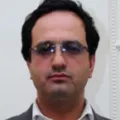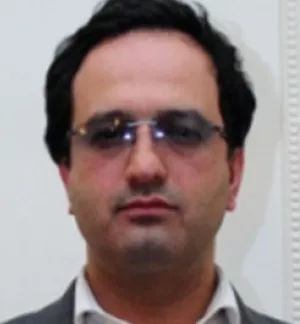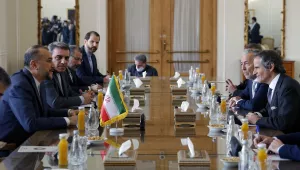On the eve of Nowruz 1389 (the Iranian New Year), U.S. President Barack Obama's main foreign policy challenge remained Iran's nuclear program and choosing between a direct strategic dialogue or new rounds of sanctions, combined with exploiting Iran's domestic political situation in order to change the direction of Iran's nuclear policy. Signs show that Obama is moving toward the latter approach. This is arguable evidence that U.S. policymakers have failed to understand the potential power and priority of national security–strategic issues and democratic political movements to influence Iran.
Obama's March 20, 2009, Nowruz message was received in Iran with a mixture of pessimism and optimism among the political elites. The pessimists, mainly rival factions of President Mahmoud Ahmadinejad, believed that a change of U.S. president would not necessarily change U.S. strategy toward Iran and predicted an unremitting opposition to the nature and existence of the Islamic Republic. Moreover, even if there were to be any real change, the time was not yet right. The optimists, mostly factions supporting President Ahmadinejad, believed the Obama presidency to be a turning point and that Iran should take advantage of such an opportunity. Although real change is a long, difficult, and protracted process, Iran is in a position to engage in strategic talks with the United States and negotiate a "grand bargain" and—by addressing the nuclear issue—resolve its strategic issues with the United States.
The aftermath of Iran's presidential election changed the situation. Although unlike his European counterparts, President Obama did not seek to directly intervene in Iran's domestic affairs, given the past history of distrust toward the United States in Iran, the ongoing impasse in nuclear talks has provided new grounds for Western leaders to focus on punitive measures via sanctions in tandem with the endeavor to weaken Iran from within. Some like Council on Foreign Relations President Richard Haass have even stressed the matter of redefining the "regime change" policy and argue that the time has come to get even tougher with Iran.
But this so-called dual strategy of imposing sanctions and political pressure through support of opposition forces inside Iran is unlikely to change Iran's nuclear policy. On the contrary, this approach will put the nuclear issue—one of national security—at the center of national unity and strengthen Iranian nationalism, which is likely to recoil at the threat of sanctions or even military conflict. This in turn will strengthen the government's hand and thus empower it to maintain the present course of its nuclear policy.
Given the physical distribution of Iran's ethnic minorities in the country as well as the past history of foreign intervention in its domestic affairs, the concept of a strong "state" and powerful central government whose main duty is to preserve national security and territorial integrity has historically had an exceptional place in the Iranian mindset. Since the Constitutional Revolution in 1906, the process of democratization has undergone many ups and downs, but it has never ceased. Iranians have been accustomed to seeking a balanced position in their country's democratization process. The advent and success of the 1979 Islamic revolution was largely based on the mobilization of Iranians to free their country from the interference of foreign governments in its internal affairs.
The power and priority of Iran's democratic movements in creating meaningful changes in the structure and distribution of governmental power is quite distinct from that of the Western model. While a major part of the legitimacy of the government in Iran stems from religion and ideology, as well as the power of the government in preserving national security, promoting democracy is intertwined with weakening or strengthening national security. For example, the government of former Iranian President Mohammad Khatami, at the peak of its power and legitimacy, was unable to bring about genuine and lasting changes. As admitted later by the reformists themselves, the main cause of their failure was their haste in trying to bring about radical political reforms overnight without due attention to the political realities of the day.
In contrast, "national security" has been the most sacred concept for Iranian governments, legitimizing its power and its right to rule. The last Shah of Iran, although with the support of the U.S. and British secret services, succeeded in the 1953 coup d'etat on the pretext of preserving national security and neutralizing the danger posed by communist forces. One of the main reasons behind the existing power of the Islamic Republic is its ability to mobilize Iranians around national security issues. The eight-year Iran-Iraq war is just such an example. It was in the context of preserving national security that the government has been able to control the post–presidential election crisis in Iran. Recently, the capture of terrorist Abdol Malek Rigi, who has claimed responsibility for numerous acts of terrorism in the Baluchistan region, has bolstered the legitimacy of the Islamic Republic in the protection and safeguarding of Iran's national security.
History has shown that, in choosing between the two concepts of democratization and national security, focusing on the latter has been more effective for regimes in attracting support of Iranian citizens. And it is interesting to note that foreign interventions in support of political movements, historically, have often legitimized the deferment of democratization by regimes which were prone to react by invoking the excuse of national security in order to neutralize nascent democratic voices. Reza Shah, who founded the Pahlavi dynasty in 1925, was able to establish an authoritarian government and end the chaos that followed the Constitutional Revolution—with significant popular support—in order to preserve Iran's territorial integrity and autonomy from foreign powers and establish law and order.
A powerful Iranian government with a national security agenda would be able to initiate direct talks with the United States, resulting in workable and tangible solutions. As is the case in the United States, the issue of direct talks is heavily influenced by domestic politics in Iran. Only a national security issue such as the nuclear program with the negotiation of a grand bargain would have the impetus and public support for initiation of a bilateral strategic dialogue. Creating political consensus among the elites is key to any possible future opening up or progress on the nuclear and various other geo-strategically pertinent fronts.
The prevailing view among Iran experts is that an Iran-U.S. rapprochement with lack of consensus among the Iranian elites would be extremely difficult or nearly impossible to achieve. President Ahmadinejad, more than any other Iranian president, has paved the way for strategic talks with the United States in order to strike a grand bargain. By insisting on the "independent nuclear fuel cycle," he achieved political consensus within the governing elites on a multitude of national security and strategic issues. Today, the nuclear issue is the primary path to any possible grand bargain between Iran and the United States because this is the exact place where the two sides' interests converge strategically.
Meanwhile, with an active foreign policy and presence in regional crises in Iraq, Afghanistan, Lebanon, and Palestine, Ahmadinejad has convinced Iranian elites that Iran is in a kind of "political-strategic parity" with the United States at the regional level and that direct talks would benefit Iran's national and security interests.
With another arrival of the Iranian New Year, there is an opportunity for President Obama to insist on strategic dialogue with Iran on national security issues and to explore a grand bargain. Moving toward imposing new rounds of sanctions or weakening Iran from within will not only have the opposite result, but most importantly will ruin any chance of a strategic dialogue. If there is going to be any grand bargain, it will not be a weak and fractured Iran that will engage in substantive negotiations with the United States. Only a strong and united Iran will have the requisite legitimacy for direct talks.
Obama's attempts to convince actors like Russia, China, or Saudi Arabia to impose new sanctions or political pressure are all short-term solutions and will not change Iran's nuclear policy. The United States needs to find a sustainable solution in dealing with Iran, based on a genuine change that can resolve existing strategic issues and in which zero-sum game solutions are finally put to bed.
Barzegar, Kayhan. “Obama and Iran: Dialogue or Sanctions?.” Belfer Center for Science and International Affairs, Harvard Kennedy School, March 23, 2010



